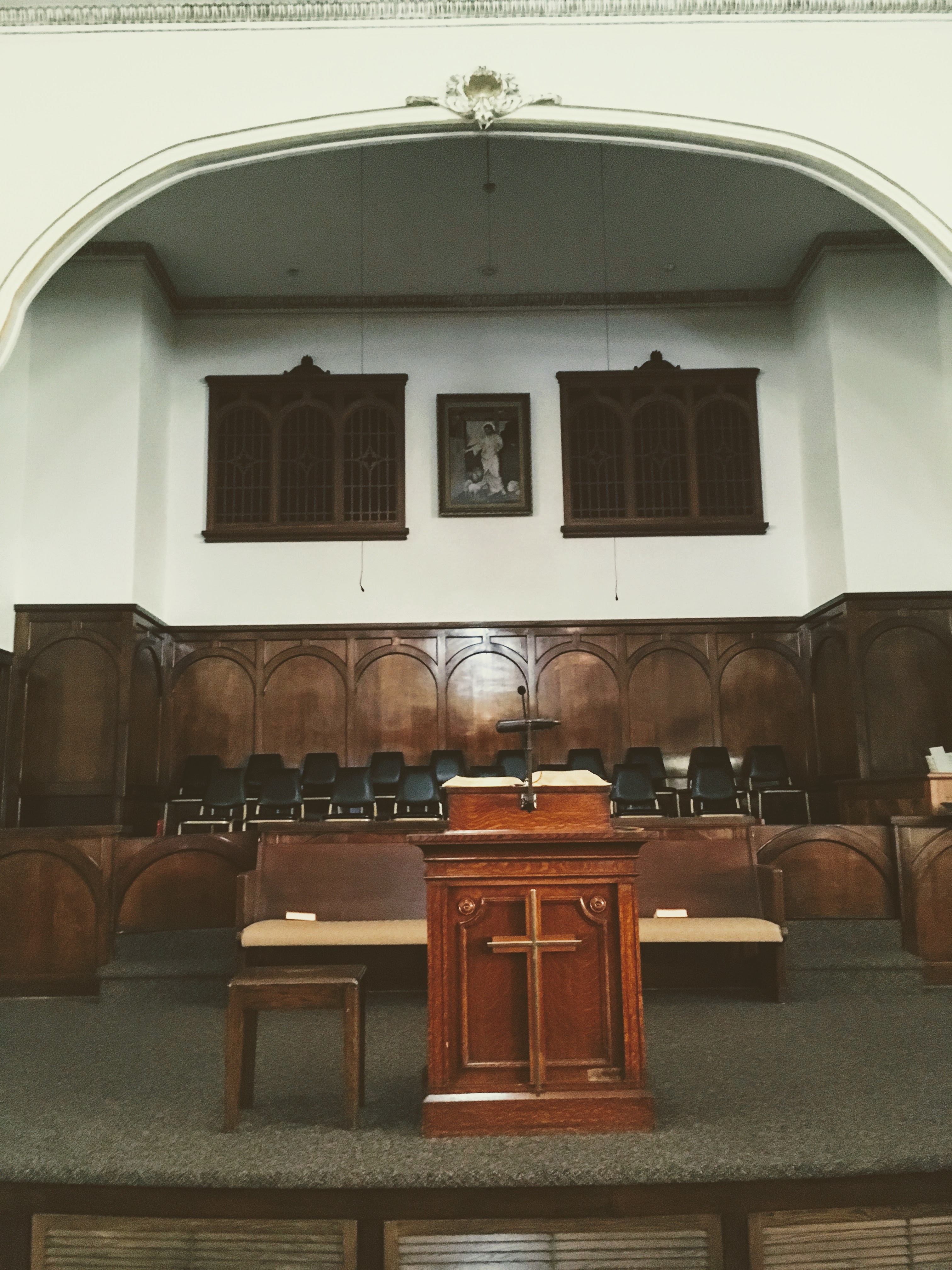October 25, 2020
Order of Worship
- Prelude: “O Worship the King” O Worship the King – piano instrumental hymn.mp3
- Announcements
- Music: “Almost Home” by Mercy Me MercyMe-Almost Home (lyric video).mp4
- Children’s moment
- Prayer Concerns
- Pastoral Prayer
- Message: “Bear One Another’s Burdens”
Scripture: Galatians 6:1-10
- Open Worship
- Benediction
——————————-
Prelude: “O Worship the King”
Announcements
Good morning, and welcome!
Thank you to Patty Savely for flowers provided by Patty Savely, and to Michael Barrett for technology.
It’s time for a distance and mask check. Make sure your mask covers your nose and your mouth; then make sure your neighbor’s mask covers their nose and mouth. Now hold out your arms and make sure you can’t touch anyone’s hands except your family – front and back, side to side. 😊
- We are live streaming on Facebook and the church website (wichitaquakers.org). Please feel free to share our worship with your Facebook friends by posting a link.
- Offering plates are at the front and the back of the meeting-room.
Among church activities this week
- The 205 Sunday School class meets this afternoon at 3:00 on Zoom.
- Monday, October 26, 9:30 am, Transition Team
- Tuesday, October 27, 6:30 pm, Book Club
- Wednesday, October 28, 6:30 pm, Bell choir rehearsal
- Wednesday, October 28, 7:00 pm, Listening Group 5.2 (Kim & Molly)
- Saturday, October 31, 5:30 pm to 7:00 pm, Spooky Yard – candy and volunteers are needed
Daylight Savings Time ends next weekend.
Any other announcements?
Music: “Almost Home” by MercyMe
Children’s Moment
Prayer Concerns
- Joe Dawley was diagnosed with pneumonia and tested positive for COVID-19. He is quarantined at home on steroids and antibiotics.
- John and Dorothy McKay participated in a family gathering this week with someone who has since tested positive for the virus. They are now quarantined.
- Rosemary Nettrouer has a partial tear on the MCL.
- Linda Mallonee reports that she’s to go home from the care facility this coming Wednesday.
- Our church during this time of transition – May we find clarity and energy for the tasks at hand and the decisions we will need to make as we find our way forward. May we find ways to use our assets wisely and well. May we discover ways we are to be a beacon of love in our world. May we be looking for the doors you are opening, and may we have the courage to walk through them. May we see what you are doing in our world and join you in it.
- Any other prayer concerns?
Prayer
God our maker, in this time of pandemic uncertainty, we turn to you. We know you are certain and strong. As we experience a world in which darkness seems so strong, fill us with your Light and Love.
Franciscan Blessing
“May God bless you with discomfort at easy answers, half truths, and superficial relationships, so that you may live deep within your heart.
May God bless you with anger at injustice, oppression and exploitation of people, so that you may work for justice, freedom and peace.
May God bless you with tears to shed for those who suffer from pain, rejection, starvation, and war, so that you may reach out your hand to comfort them and turn their pain to joy.
And may God bless you with enough foolishness to believe that you can make a difference in this world, so that you can do what others claim cannot be done.
Message
Earlier this week, as I was mulling about the message for this morning, I remembered a book called We Really Do Need Each Other by Reuben Welch. I first came across this book in seminary in the early 1980s. I went to the same seminary as Art Binford, Western Evangelical Seminary, an interdenominational school in Oregon, though Art and I did not go there at the same time. 😊 Since the 80s, the seminary was acquired by George Fox University and became George Fox Evangelical Seminary. These days it is called Portland Seminary, still multidenominational and evangelical, still part of George Fox University.
When I was a student at WES, they had a program of student-led small groups. One year, I was a leader of one of those groups, and that year, we read Reuben Welch’s book, We Really Do Need Each Other. It seemed like a good resource for a message about bearing one another’s burdens, so I made a note to look for it in my library. Put the sticky note on my phone so I would remember to look; went over to the office to check in with Sandy; opened my office to search the shelves, and it’s not there. Apparently, as I culled my books before moving to Wichita, I decided that I really didn’t need We Really Do Need Each Other. Oh, well.
I did find this review of the book on Goodreads: “Excellent book that challenges our essential default thought patterns of an individual relationship with God in a vacuum and independent from all other people…” (https://www.goodreads.com/book/show/792830.We_Really_Do_Need_Each_Other).
Our personal relationship with God is not in a vacuum, independent of other people. We really do need each other.
Galatians 6:1-10 (NRSV) reads like this:
6 My friends, if anyone is detected in a transgression, you who have received the Spirit should restore such a one in a spirit of gentleness. Take care that you yourselves are not tempted. 2 Bear one another’s burdens, and in this way you will fulfill the law of Christ. 3 For if those who are nothing think they are something, they deceive themselves.
It works the other way too: if those who are something think they are nothing, they deceive themselves.
4 All must test their own work; then that work, rather than their neighbor’s work, will become a cause for pride. 5 For all must carry their own loads.
6 Those who are taught the word must share in all good things with their teacher.
7 Do not be deceived; God is not mocked, for you reap whatever you sow. 8 If you sow to your own flesh, you will reap corruption from the flesh; but if you sow to the Spirit, you will reap eternal life from the Spirit. 9 So let us not grow weary in doing what is right, for we will reap at harvest time, if we do not give up. 10 So then, whenever we have an opportunity, let us work for the good of all, and especially for those of the family of faith.
This passage has a lot going on, and I’m going to focus on just three bits:
- Bear one another’s burdens (verse 2)
- All must carry their own loads. (verse 5)
- Let us work for the good of all (verse 10)
First, verse 2: “Bear one another’s burdens, and in this way you will fulfill the law of Christ.”
So, what is the law of Christ?
According to the Gospel of John, Jesus said, “This is my commandment, that you love one another as I have loved you” (John 15:12, NRSV).
The law of Christ says love one another, and Paul, here in Galatians, said bearing each other’s burdens is the way to do that.
How do we go about bearing one another’s burdens? I observed a few examples this week.
- Last Sunday, during our Monthly Meeting for worship with attention to business, Beth McDonald suggested that when someone comes to mind, we should contact them, and she told about how much it meant to her when someone called her. “You’ve been on my mind. How are you doing?”
- Joan Smith told me that she and Gordon had been one of three couples who got together once a month to play Mexican Train, a dominoes game, women against men. Since Gordon’s death, these friends have figured out a way to play without teams, so they can continue to get together and enjoy the game.
- I heard someone else say, “I know I’ve dropped the ball,” about a responsibility that turned out to be more difficult than expected, one more source of stress in an already stressful situation. “Maybe you need to pass the ball,” I said. Passing the ball meant others could pick up the responsibility.
Picking up responsibilities for someone who’s struggling is one way to bear one another’s burdens. So is adjusting to include someone who’s alone or making a caring phone call.
We are all finite, limited. That’s not a flaw, just the human condition. We can only be in one place at a time. There are limits to what we can do, to what we can handle.
Someone once said, “I have been doing so much with so little for so long that soon I’ll be able to do everything with nothing forever.” Yeah, right. Everybody needs help sometimes.
Sometimes we need help. Sometimes we can give help. Asking for help, accepting help, offering help – those are ways we “Bear one another’s burdens and so fulfill the law of Christ” (Galatians 5:2).
Verse 5 of Galatians 6 says, “… all must carry their own loads.” Wait, what?
Verse two says to bear one another’s burdens, while verse five says everybody has to care their own loads. How can those both be true?
I have some thoughts about this.
First, sometimes what we think is helpful is neither welcome nor needed. British Quaker John Punshon was sometimes heard to say: People who want to be helpful seldom are.
Along those lines, you may have heard the term mansplaining. Yes?
Here’s what Wikipedia says about it:
Mansplaining … is a pejorative term meaning “(of a man) to comment on or explain something to a woman in a condescending, overconfident, and often inaccurate or oversimplified manner.” …
In its original use, mansplaining differed from other forms of condescension in that it was said to be rooted in the assumption that a man is likely to be more knowledgeable than a woman. However, it has come to be used more broadly, often applied when a man takes a condescending tone in an explanation to anyone, regardless of the age or gender of the intended recipients: a “man ‘splaining” can be delivered to any audience (https://en.wikipedia.org/wiki/Mansplaining).
I will say with some confidence that such condescending and overly confident explaining can be delivered to any audience and by any person, not just by men to women.
To avoid such “splaining,” one writer suggested these questions or queries to consider (https://www.bbc.com/worklife/article/20180727-mansplaining-explained-in-one-chart):
- Do they want the explanation? If someone asks you a question, explain away! Unsolicited explanations may be fine (within reason) if you’re someone’s teacher or manager. Explaining after they’ve declined your help is almost always disrespectful. Conversation is a good place to start building the habit of consent.
- Are you making bad assumptions about competence? Explaining things to knowledgeable people isn’t just wasting everyone’s time. You may, regardless of your intent, undermine them by implying you don’t trust their competence or intelligence. You also run the risk of undermining yourself by looking like you have an inflated opinion of your own knowledge.
- How does bias affect your interpretation of the above? Both questions [about whether an explanation is wanted or needed] are complicated by sexism and other kinds of bias. We’re all taught gender bias in behavior and communication from an early age, with boys and girls being criticised and praised for different behaviors in school. We all like to think we treat people fairly, but men often assume women are less competent, and white people are likely to assume darker skin equals lower intelligence.
Carrying one’s own load, from this perspective, means that before we jump in to help someone bear their burdens, we would be wise to consider the possibility that we might be coming from a position of bias, that we might be inaccurately assuming lack of competence, and that our help or expertise might not be wanted or needed.
As my grandma might have said, sometimes we need to tend to our own knitting.
Put another way, we need to take responsibility for our own stuff (or the s-word of your choice).
Matthew 7:4-5 says,
… how can you say to your neighbor, ‘Let me take the speck out of your eye,’ while the log is in your own eye? 5 … first take the log out of your own eye, and then you will see clearly to take the speck out of your neighbor’s[c] eye.
In the context of burden bearing, self-awareness is a part of carrying our own loads. Knowing that we might have a tendency to jump in where help isn’t wanted or needed might keep us from hurting someone else (by trying to take a splinter out of their eye when we’re not seeing all that well in the first place), or it might help us deal with our own stuff, when that’s exactly what we need to be doing.
We are finite, limited. Our ability to take responsibility is limited. In light of that, carry your own burdens first. If you need help with your own stuff, ask. And then you’ll know whether you have the time and energy to help bear someone else’s burden.
- Galatians 6:2 says, “Bear one another’s burdens, and in this way you will fulfill the law of Christ.”
- Galatians 6:5 says, “… all must carry their own loads.”
- Galatians 6:10 says, “… let us work for the good of all.”
I think of this idea as the over-arching guideline in this burden-bearing business. As we think about whether we should be carrying something for someone else or focusing on what we ourselves need to do, a helpful question to ask is, what would be best for everyone?
If my help isn’t needed or wanted, then it would be best for everyone if I don’t put my oar in.
If help is needed and wanted, but my own load is more than heavy enough at the moment, then it would be best for everyone if I take care of myself first.
“So then, whenever we have an opportunity, let us work for the good of all….”
Open worship
Let us join together in communion after the manner of Friends.
Benediction
We are meeting in person and also streaming our sermons on Facebook at 10:00 AM CST. Watch live:
https://www.facebook.com/universityfriendschurch/
Not on Facebook? You can see all of our posts and videos on our site here!



